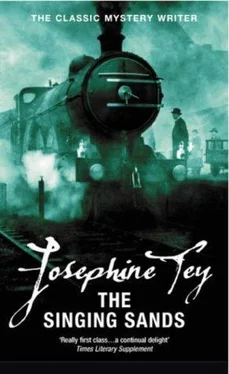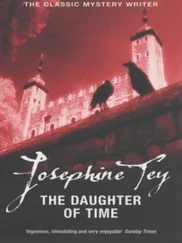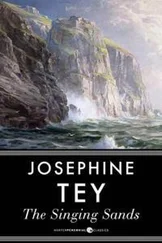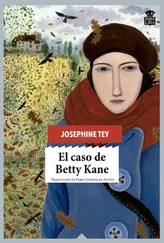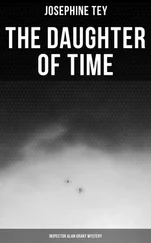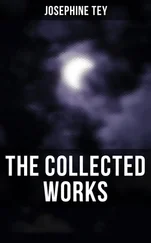‘It isn’t that I want to get away from Clune. Quite the contrary. If I could take Clune en bloc with me I would. It is just that I have got bitten with the idea of those sands.’
He saw Laura begin to consider the idea from a new angle, and he could follow her thought quite well. If this was what his sick mind wanted, then it would be wrong to try to dissuade him. The interest of a place he had never seen before should be an ideal counteraction to self-conscious brooding.
‘Oh, well, what you want is a Bradshaw, I suppose. We do have one, but it’s mostly used as a door-stop or a step for the top bookshelf, so it’s a little out of date.’
‘As far as the services to the Outer Islands are concerned, it won’t matter what the date of it is,’ said Tommy. ‘The Laws of the Medes and the Persians are not more unchangeable than MacBrayne’s schedules. As someone has remarked, they don’t exactly encroach on eternity but they very nearly outlast time.’
So Grant found the Bradshaw and took it to bed with him.
And in the morning he borrowed a small case from Tommy, and packed into it the bare necessities of existence for a week or so. He had always had a passion for travelling light, and it always pleased him to be getting away by himself, even from people he loved (a trait that had done much to keep him single) and he caught himself whistling under his breath as he put the few things into the small space. He had not whistled to himself since the shadow of unreason had reached out and taken the sunlight from him.
He was going to be foot-loose again; foot-loose. It was a beautiful thought.
Laura had promised to drive him into Scoone in time to catch the train to Oban, but Graham was late in coming back with the car from Moymore village, so that it was touch-and-go whether he caught the train at all. They made it with thirty seconds to spare, and a breathless Laura pushed a bundle of papers into the open window as the train pulled out, and gasped: ‘Enjoy yourself, my dear. Seasickness does wonders for the liver.’
He sat, alone in the compartment, in a daze of contentment with the magazines unheeded on the seat beside him. He watched the bare empty landscape trundle by and grow slowly greener as they went west. He had no idea why he was going to Cladda. It was certainly not to gather information in the police sense. He was going—to find B Seven. That is as near as it could be put into words. He wanted to go and see this place which so nearly reproduced the landscape of the poem. He wondered, sunk in sleepy bliss, whether B Seven had ever talked to anyone about his Paradise. He remembered the writing and thought not. Those tightly arcaded M’s and N’s were too defensive to have been made by a talker. In any case, it didn’t matter how many people he had talked to about the thing, since there was no way of making contact with them. He could hardly put an advertisement in the papers saying: Read this poem and tell me if you recognise it.
Or—why couldn’t he?
His sleepiness fell from him while he considered this new angle.
He considered it all the way to Oban.
In Oban he went to a hotel, ordered a self-congratulatory drink, and while he consumed it he wrote to each of the London daily papers enclosing a cheque and asking them to print an identical notice in their personal column. The notice said:
‘The beasts that talk, the streams that stand, the stones that walk, the singing sand….Anyone recognising please communicate with A. Grant, c/o P.O., Moymore, Comrieshire.’
The only daily papers to which he did not send this appeal were the Clarion and The Times . He did not want Clune to think that he had taken leave of his senses altogether.
As he made his way along the front to the cockleshell in which he was due to brave the Minch, he thought: ‘It will serve me right if someone writes to say that the thing is one of the best-known lines of some Xanadu concoction of Coleridge’s, and that I must be illiterate not to have known it!’
The wallpaper consisted of far too heavy roses hanging from a far too slender trellis-work, and the insecure character of the whole thing was increased by the fact that the paper not only hung away from the wall but moved about in the draught. It was not readily obvious where the draught came from because the small window was not only tightly shut but had patently been tightly shut since its manufacture and original insertion in the house structure about the beginning of the century. The little swing mirror on the chest of drawers lived up to its promise in the first respect but not in the second. It would swing with ease amounting to abandon through the whole circle of three hundred and sixty degrees; but it did not reflect anything to any noticeable degree. A last year’s cardboard calendar folded in four kept its gyratory talents in check, but nothing of course could be done to increase its powers of reflection.
Two of the four drawers in the chest were capable of being opened. The third would not open because it had lost its knob, and the fourth because it had lost the will. Above the black iron fireplace with its frill of red crinkled paper brown with age was an engraving of a partially clothed Venus comforting a quite unclothed Cupid. If the cold had not already eaten into his bones Grant thought that this picture would have finished the process.
He looked from the little window down on the small harbour with its collection of fishing-boats, at the grey sea slapping drearily against the breakwater, and the grey rain beating on the cobbles, and thought of the log fire in the sitting-room at Clune. He toyed with the idea of going to bed as the quickest way of getting warm, but a second glance at the bed dissuaded him. Its plate-like thinness was made even more plate-like by the meagre covering of a white honeycomb cotton cover. At the foot, a turkey-red cotton quilt suitable for a doll’s perambulator was folded into an elaborate pattern. Above it brooded the finest collection of unmatching brass knobs that it had ever been Grant’s fortune to meet.
Cladda Hotel. The gateway to Tir nan Og.
He went downstairs and poked the smoky fire in the sitting-room. Someone had banked up the fire with the potato peelings from lunch, so his efforts were not very successful. Rage came to his rescue and he rang the bell with all his might. The wires jangled in a crazy dance somewhere in the walls but no bell rang. He went out into the lobby where the wind was coming soughing in under the front door and shouted. Never, even in his best form on the ‘square’, had he used his voice with so passionate a determination to produce results. A young female creature came from the back regions and stared at him. She had a face like a rather practical Madonna and legs the same length as her body.
‘Wis yu bawling?’ she asked.
‘No, I wasn’t bawling. That sound you heard was my teeth chattering. In my country a sitting-room fire is designed to give out heat not to consume refuse.’
She looked at him a little longer as if translating his speech into a more understandable idiom, and then moved past him to look at the fire.
‘ Oh Dé ,’ she said, ‘that will never do. Stop you and I’ll get you a bit of fire.’
She went away and came back with what seemed to be most of the kitchen fire blazing on a shovel. Before he could remove some of the packed dross and vegetable matter from the grate she had dumped the flaming mass on top of all.
‘I’ll be getting some tea to warm you,’ she said. ‘Mr Todd is down at the pier seeing did the things come on the boat. He’ll be back in no time at all.’
She said it comfortingly, as if the presence of the proprietor would automatically be warming. Grant took it for granted that she was apologising for the absence of an official welcome to a guest.
Читать дальше
